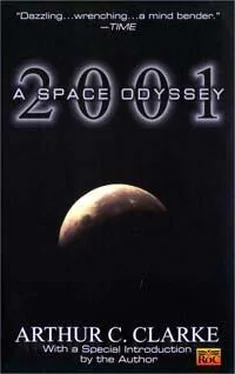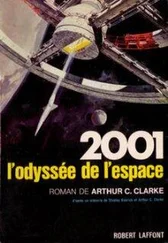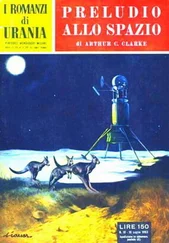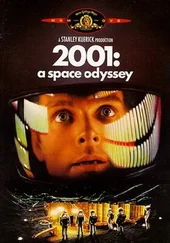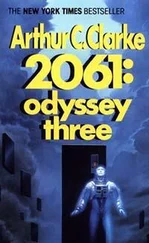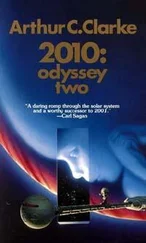Arthur C. Clarke,
2001: A SPACE ODYSSEY

Behind every man now alive stand thirty ghosts, for that is the ratio by which the dead outnumber the living. Since the dawn of time, roughly a hundred billion human beings have walked the planet Earth.
Now this is an interesting number, for by a curious coincidence there are approximately a hundred billion stars in our local universe, the Milky Way. So for every man who has ever lived, in this Universe there shines a star.
But every one of those stars is a sun, often far more brilliant and glorious than the small, nearby star we call the Sun. And many – perhaps most – of those alien suns have planets circling them. So almost certainly there is enough land in the sky to give every member of the human species, back to the first ape-man, his own private, world-sized heaven – or hell.
How many of those potential heavens and hells are now inhabited, and by what manner of creatures, we have no way of guessing; the very nearest is a million times farther away than Mars or Venus, those still remote goals of the next generation. But the barriers of distance are crumbling; one day we shall meet our equals, or our masters, among the stars.
Men have been slow to face this prospect; some still hope that it may never become reality. Increasing numbers, however, are asking: "Why have such meetings not occurred already, since we ourselves are about to venture into space?"
Why not, indeed? Here is one possible answer to that very reasonable question. But please remembert thi sis only a work of fiction.
The truth, as always, will be far stranger.
To Stanley
1 – The Road to Extinction
The drought had lasted now for ten million years, and the reign of the terrible lizards had long since ended. Here on the Equator, in the continent which would one day be known as Africa, the battle for existence had reached a new climax of ferocity, and the victor was not yet in sight. In this barren and desiccated land, only the small or the swift or the fierce could flourish, or even hope to survive.
The man-apes of the veldt were none of these things, and they were not flourishing. Indeed, they were already far down the road to racial extinction. About fifty of them occupied a group of caves overlooking a small, parched valley, which was divided by a sluggish stream fed from snows in the mountains two hundred miles to the north. In bad times the stream vanished completely, and the tribe lived in the shadow of thirst.
It was always hungry, and now it was starving. When the first faint glow of dawn crept into the cave, Moon-Watcher saw that his father had died in the night. He did not know that the Old One was his father, for such a relationship was utterly beyond his understanding, but as he looked at the emaciated body he felt dim disquiet that was the ancestor of sadness.
The two babies were already whimpering for food, but became silent when Moon-Watcher snarled at them. One of the mothers, defending the infant she could not properly feed, gave him an angry growl in return; he lacked the energy even to cuff her for her presumption.
Now it was light enough to leave. Moon-Watcher picked up the shriveled corpse and dragged it after him as he bent under the low overhang of the cave. Once outside, he threw the body over his shoulder and stood upright – the only animal in all this world able to do so.
Among his kind, Moon-Watcher was almost a giant. He was nearly five feet high, and though badly undernourished weighed over a hundred pounds. His hairy, muscular body was halfway between ape and man, but his head was already much nearer to man than ape. The forehead was low, and there were ridges over the eye sockets, yet he unmistakably held in his genes the promise of humanity. As he looked out upon the hostile world of the Pleistocene, there was already something in his gaze beyond the capacity of any ape. In those dark, deep-set eyes was a dawning awareness – the first intimations of an intelligence that could not possibly fulfill itself for ages yet, and might soon be extinguished forever.
There was no sign of danger, so Moon-Watcher began to scramble down the almost vertical slope outside the cave, only slightly hindered by his burden. As if they had been waiting for his signal, the rest of the tribe emerged from their own homes farther down the rock face, and began to hasten toward the muddy waters of the stream for their morning drink.
Moon-Watcher looked across the valley to see if the Others were in sight, but there was no trace of them. Perhaps they had not yet left their caves, or were already foraging farther along the hillside. Since they were nowhere to be seen, Moon-Watcher forgot them; he was incapable of worrying about more than one thing at a time.
First he must get rid of the Old One, but this was a problem that demanded little thought. There had been many deaths this season, one of them in his own cave; he had only to put the corpse where he had left the new baby at the last quarter of the moon, and the hyenas would do the rest.
They were already waiting, where the little valley fanned out into the savanna, almost as if they had known that he was coming. Moon-Watcher left the body under a small bush – all the earlier bones were already gone – and hurried back to rejoin the tribe. He never thought of his father again.
His two mates, the adults from the other caves, and most of the youngsters were foraging among the drought-stunted trees farther up the valley, looking for berries, succulent roots and leaves, and occasional windfalls like small lizards or rodents. Only the babies and the feeblest of the old folk were left in the caves; if there was any surplus food at the end of the day's searching, they might be fed. If not, the hyenas would soon be in luck once more.
But this day was a good one – though as Moon-Watcher had no real remembrance of the past, he could not compare one time with another. He had found a hive of bees in the stump of a dead tree, and so had enjoyed the finest delicacy that his people could ever know; he still licked his fingers from time to time as he led the group homeward in the late afternoon. Of course, he had also collected a fair number of stings, but he had scarcely noticed them. He was now as near to contentment as he was ever likely to be; for though he was still hungry, he was not actually weak with hunger. That was the most to which any man-ape could ever aspire.
His contentment vanished when he reached the stream. The Others were there. They were there every day, but that did not make it any the less annoying.
There were about thirty of them, and they could not have been distinguished from the members of MoonWatcher's own tribe. As they saw him coming they begun to dance, shake their arms, and shriek on their side of the stream, and his own people replied in kind.
And that was all that happened. Though the man-apes often fought and wrestled one another, their disputes very seldom resulted in serious injuries. Having no claws or fighting canine teeth, and being well protected by hair, they could not inflict much harm on one another. In any event, they had little surplus energy for such unproductive behavior; snarling and threatening was a much more efficient way of asserting their points of view.
The confrontation lasted about five minutes; then the display died out as quickly as it had begun, and everyone drank his fill of the muddy water. Honor had been satisfied; each group had staked its claim to its own territory. This important business having been settled, the tribe moved off along its side of the river. The nearest worthwhile grazing was now more than a mile from the caves, and they had to share it with a herd of large, antelope-like beasts who barely tolerated their presence. They could not be driven away, for they were armed with ferocious daggers on their foreheads – the natural weapons which the man-apes did not possess.
Читать дальше
